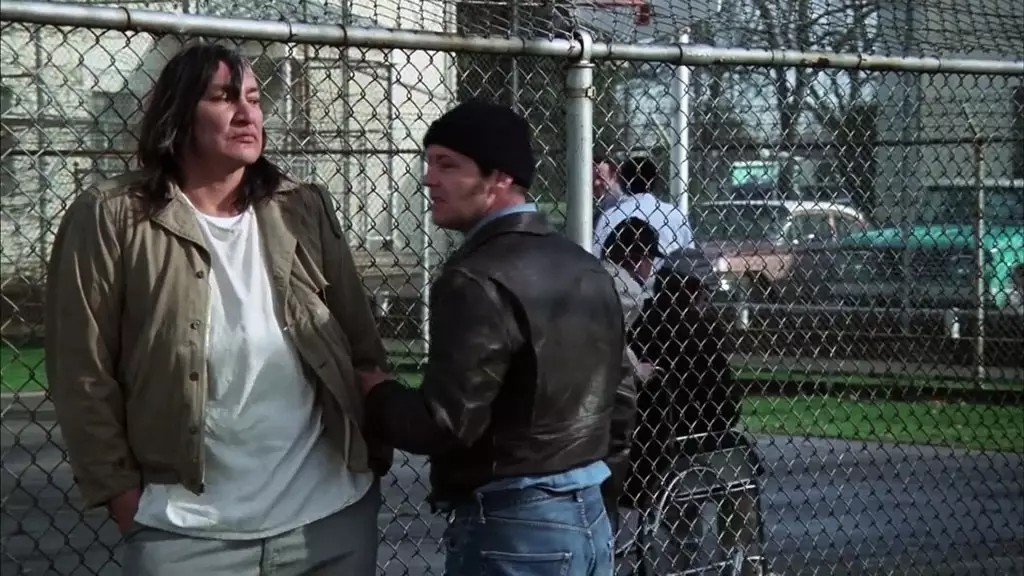The anticipation surrounding the upcoming television adaptation of *One Flew Over the Cuckoo’s Nest* signals a significant shift in how we approach beloved classics. Unlike the 1975 film that etched itself into cinematic history with its riveting performances and gritty storytelling, this new series aims to explore the story from a fresh vantage point—the perspective of Chief Bromden. While critics and fans alike debate the wisdom of revisiting such a revered work, there is undeniably a boldness in attempting to deepen our understanding of this narrative universe. By choosing to center the story on Chief’s point of view, the creators show a willingness to expand the emotional landscape and offer a more layered interpretation of the characters’ struggles.
However, this endeavor raises questions about fidelity to the original source material and whether the new series can genuinely carve its own identity while respecting what made the story resonate so deeply. Historically, adaptations are fraught with the challenge of balancing innovation with reverence. Given that Ken Kesey’s estate appears supportive of this venture, it hints at a desire to delve into unexplored facets of the narrative—particularly, what happens after Chief’s escape. Such a forward-looking approach could breathe new vitality into the story, but it risks alienating purists who cherish the original’s raw storytelling and thematic integrity. The decision to follow Chief’s fate after the hospital augments the potential for storytelling complexity but also invites scrutiny over whether the creative team can honor the novel’s core themes of rebellion and mental health advocacy.
The Risks and Rewards of Reimagining a Classic
Rebooting or reimagining a classic film or literary work is inherently perilous. Critics often argue that remakes, especially of revered works like *One Flew Over the Cuckoo’s Nest*, diminish the original’s impact or dilute its cultural significance. Paul Zaentz’s expressed skepticism about film remakes—highlighting examples like *Psycho*—reflects a cautious stance shared by many in the industry. Yet, he concedes that episodic storytelling can provide an expansive canvas—allowing characters like McMurphy or Chief Bromden to be explored more intricately than a two-hour film could permit.
What complicates the current landscape is the saturation of reboots and remakes, many of which fall short of the hype or original allure. Netflix’s *Ratched*, Zaentz’s previous venture into this universe, serves as a cautionary tale; despite high production values and a compelling premise, it failed to capture the essence that made *Cuckoo’s Nest* an enduring classic. This raises the question: can a series offer the depth and nuance that the original film or novel delivered, or will it end up as mere nostalgia?
Zaentz’s skepticism about certain adaptations underscores a broader industry concern—the peril of transforming complex, culturally embedded stories into superficial entertainment. Yet, he also acknowledges that serialized formats can allow for deeper character development, which is a compelling argument for adopting the format. His recent acquisition of the Zaentz library, emphasizing quality storytelling across a variety of critically acclaimed titles, suggests a strategic move to elevate his projects beyond mere rehashes.
Moving Beyond Nostalgia: The Future of *Cuckoo’s Nest*
The decision to revisit *One Flew Over the Cuckoo’s Nest* at this moment in time speaks volumes about the enduring relevance of its themes—rebellion, mental health, institutional power, and personal emancipation. Interestingly, Zaentz’s disapproval of direct remakes indicates an intent to treat this new series as an authentic expansion rather than a superficial retread. It’s an ambitious promise: to explore uncharted emotional territory within a universe already steeped in cultural significance.
What remains to be seen is whether this adaptation will establish a new canonical voice or simply serve as a nostalgic update. By spotlighting Chief Bromden’s perspective, the series might provide a more empathetic understanding of mental health struggles and indigenous characters, often marginalized in older representations. Conversely, it risks becoming another instance of the “reboot fatigue” that plagues modern television—where stories are hollowed out for mass consumption without respecting their depth.
In the end, this venture represents a gamble. It’s an opportunity to reaffirm *Cuckoo’s Nest*’s importance in contemporary conversation about mental health and social rebellion, but only if the creative team approaches it with genuine insight and respect. The challenge lies not just in recreating what was but in redefining what can be—transforming a cinematic classic into a compelling, thought-provoking series for a new generation eager for meaningful stories unafraid to confront uncomfortable truths.

